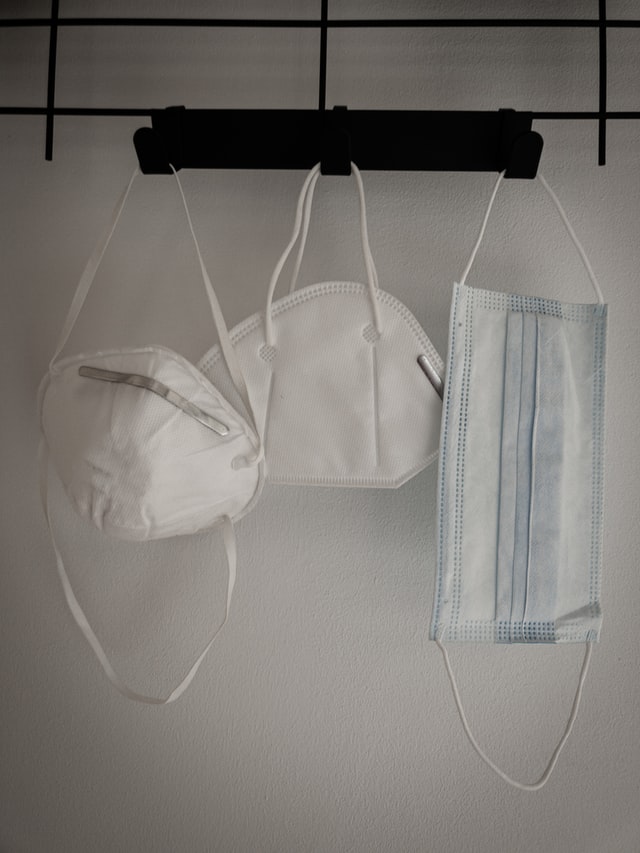Home / Pushing Back Against Covid Shame
Pushing Back Against Covid Shame

The dreaded pink line
bleeding across the test strip
next to the navy
“Like a pregnancy test—two lines means positive” said the woman in royal blue scrubs,
unphased that we all had tested positive.
In awe that after almost two years
the thing I had most avoided
had happened,
I left my body.
As I looked down at myself
seeing Her, my body
defending HerSelf,
Her tiny T cells
recognizing the protein spikes,
remembering them by heart,
dismantling them—
Later watching as She shouldered the headaches,
parched throat,
fog, and fatigue,
as She brought baby to antibody rich bosom
while preparing nourishment and fluids for all,
ensuring everyone eats—
In all these undertakings I watched Her in awe
grateful for these blessings from the Goddess Divine.
She is fighting this vicious virus
Right
Now.
I am amazed that I am She
She is me
And We are here
Now.
We are still here.
I am here now.
Covid has won some,
but has not won it all.
Now I rest.
I wrote the above poem on December 30, 2021—the day I tested positive, along with my partner and four-year-old. The testing site did not test those under 12 months, so we chose to act as if our 6-month-old baby was positive as well. As we re-entered quarantine, flashbacks from March 2020 onward roared back. I experienced again those memories riddled with fear, anger, guilt, and shame: What if my kids get really sick? How could I be so careless! Did I fail to protect my family? I must be a terrible mother.
At a time when covid cases are surging, health care resources are scarce, and schools are transitioning to virtual, it feels like 2022 is in reality 2020 too. Omicron’s extremely high transmissibility has experts predicting that many who “did everything right” when it comes to public health guidance will likely test positive in the coming weeks—if they haven’t already. For many, this reality brings with it crippling feelings of shame. Indeed, the shame of testing positive for coronavirus has garnered recent media attention. Given the cumulative effect of the pandemic’s emotional toll over the past two years, it is no wonder that the effects of this shame are detrimental to well-being and worrisome for our collective mental health. Feminist bioethics offers a lens that pushes back against coronavirus shame and offers a narrative where people can claim a resilient dignity and agency amidst their coronavirus diagnosis.
Perhaps the most sinister emotion to accompany testing positive for covid, shame is that intensely painful feeling or experience of believing that we are flawed and therefore unworthy of love and belonging. It is that inner moral judgement decreeing “I’m a bad person.” Shame is felt in the body, and its effects can be significant: individuals feeling shame describe it as a sense of shrinking, smallness, worthlessness, and powerlessness. In the health care context, patients experiencing shame related to HIV status, eating disorders, and weight are more likely to face stigmatization from their health care professionals, have their health needs dismissed, and be at-risk for anxiety and depression. The pandemic has exacerbated mom-shame, and has led to covid shame among BIPOC, health care workers, and those with chronic illnesses. Covid shame is antithetical to public health responses to thwart the pandemic, because those who are made to feel shame—whether outwardly or inwardly imposed—withdraw instead of take action.
What is the antidote to covid shame? While there is no quick fix, a feminist lens can help all people experiencing covid shame to support one another in pushing back against it together. Feminist bioethics shines a light on the shared vulnerability, dependency, and relationality essential to the embodied human experience. Speaking out about feelings of shame in trusted circles can help normalize the experience of testing positive for covid, and appropriate commiseration about “doing all the right things”—or perhaps doubting one ever knew the right thing in the first place!—is an example of giving voice to these human realities we are reminded of by feminist bioethics. Feminist bioethics allows us to recognize the moral goodness of our limitedness; our inherent interconnectedness to others; and our birthright to self-care. Undoubtedly, focusing additional lenses of womanist ethics, post-colonial ethics, and narrative ethics can further enhance our collective ability to push back against covid shame.
What about shaming the unvaccinated? Won’t it help them learn their lesson? The short answer is that shaming is unlikely to motivate vaccination. The deeper truth is that shaming discounts the dignity, agency, and responsibility of others. Feminist bioethics pushes us to know better—to know that shame is a harmful emotion, detrimental to our collective health, with no valuable lessons to teach. Feminist bioethics calls us to do better—to ask questions like “What values underly this person’s decision?” “What relationships are most precious to them?” “What does this person need to feel safe enough to trust health recommendations?” This reframing is expected to be uncomfortable, even difficult. If we find it impossible, however, to replace the desire to shame with a sense of curiosity and respect, we should take it as a sign of deeper moral residue from the unrelenting pandemic, and pause for a bit to take care of ourselves.
If the impulse to shame is toward yourself, I invite you to reframe the shame as awe and gratitude—awe that your body is destroying the coronavirus, and gratitude to yourself for getting vaccinated and taking care of your loved ones.
I would like to express gratitude to Kerri Allen, Amy Bovi, Rikki Caffrey, and Elizabeth Compton for discussion around key ideas and the encouragement to share this piece with the world.
Alyson Isaksson Capp is the Director of Ethics at Advocate Aurora Health and Clinical Adjunct Assistant Professor in Family Medicine and Community Health at the University of Wisconsin School of Medicine and Public Health.
